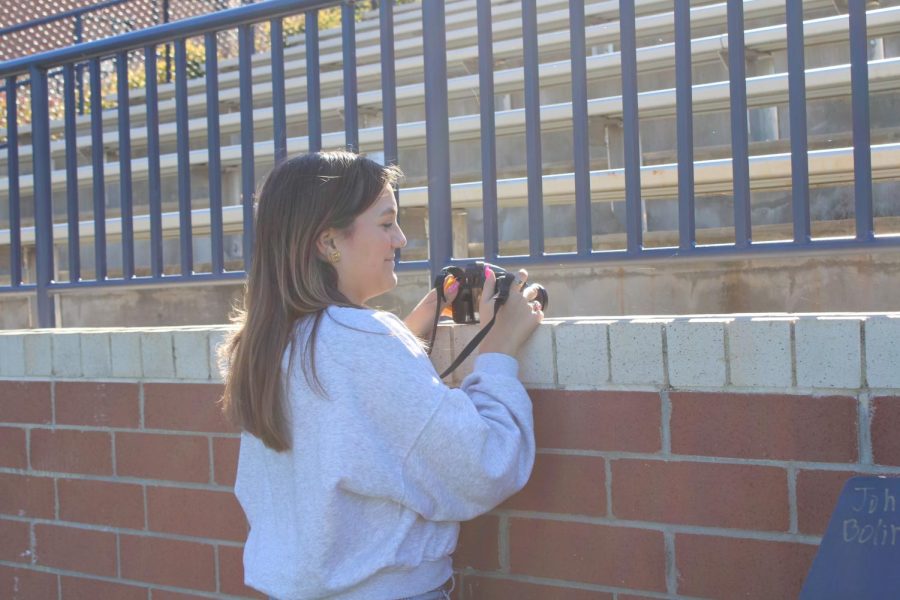Capturing the Moment
Researchers debate the psychological effects of photo-taking
Eliza Petty (12) takes a photo for the photography staff to be published in the yearbook.
February 2, 2022
With the increasing presence of social media, people feel constant pressure to take and share photos with their followers. According to nytimes.com, people took an estimated 1.3 trillion photos in 2017, a stark increase from the 350 billion photos taken in 2010. The increasing pressure to document one’s experiences through snapping photos raises concerns over whether constantly documenting life moments may cause people to miss out on living their lives.
According to Yale Insights, Gal Zauberman, a professor of marketing at the Yale School of Management, took to researching this concern. Zauberman and his co-researchers conducted a number of experiments in a lab setting, where they randomly assigned participants to either take pictures, or not take pictures, of experiences. After the experience, the participants were asked to record their reactions. Zauberman’s research showed that the photo takers reported engaging with the experiences more and enjoying them more. The findings apply to both positive and negative experiences, so taking photos makes one more engaged with the negative experiences causing increased internal negativity.
“My first intuition was that somehow [taking photos] would harm your experience because it disengages you,” Zauberman said. “It introduces another task. It’s not natural. There’s something that stands between you and the experience. But we found exactly the opposite of that.”
However, Linda Henkel a psychology professor at Fairfield University, did research suggesting that photo-taking impairs human experiences by “off-loading” our memory. According to npr.org, in 2013, Henkel conducted a study showing that people have more difficulty remembering art objects they’ve seen in a museum if they took pictures of them. An analogy to describe this effect is writing down a phone number. Henkel explained that if you write down someone’s phone number, you’re less likely to remember it offhand because your brain tells you that there was no need.
“When people rely on technology to remember something for them, they’re essentially outsourcing their memory,” Henkel said. “They know their camera is capturing that moment for them, so they don’t pay full attention to it in a way that might help them remember.”
Ultimately, researchers are undecided on whether the effects of photo-taking are either good or bad. Psychologists encourage people to take photos for themselves rather than to impress peers on social media.
Eliza Hammett (11) is on the SHS photography staff and enjoys taking pictures in her free time.
“I enjoy taking photos because I feel that it gives me the ability to capture people’s true emotions through a photo,” Hammett said. “I do think that it can take away from being able to live life in the moment because I can be overly worried about capturing the perfect picture but my love of taking photos makes it worth it to me.”




